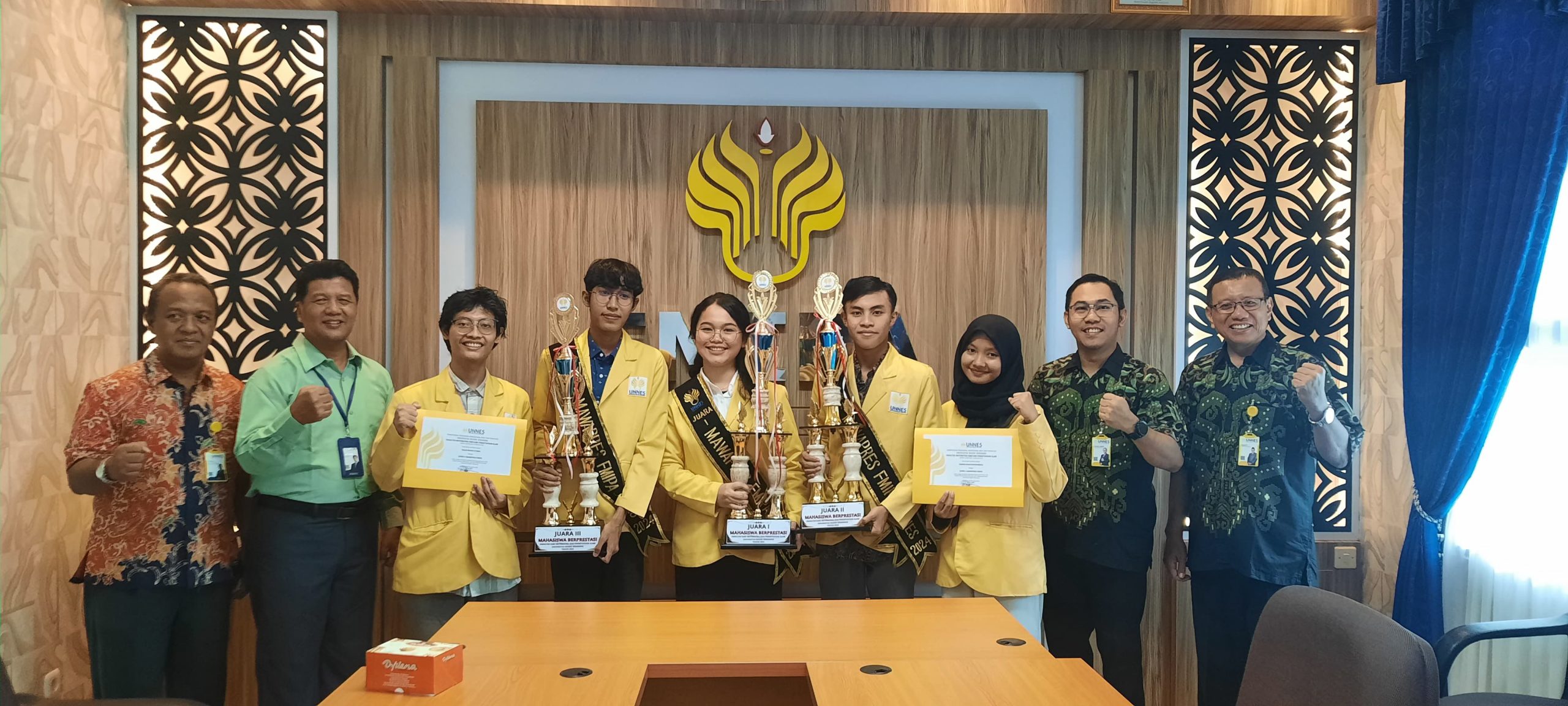
Senda Kartika Rakainsa, S.Farm., M.Pharm. Sc adalah dosen muda di Jurusan Kimia FMIPA UNNES dengan mata kuliah pokok Farmakognosi, Fitokimia, Standardisasi Bahan Alam. Alamat surat elektronik: [email protected].
Era industri 4.0 ini membawa tantangan baru pada semua bidang pekerjaan, tak terkecuali pada profesi apoteker. Apoteker berkewajiban melakukan pelayanan kefarmasian, yang mana pada era persaingan global saat ini mengalami perubahan paradigma dari drug-oriented ke patient-oriented. Kegiatan pelayanan kefarmasian yang semula hanya berfokus pada pengelolaan obat sebagai komoditi berubah orientasinya menjadi pelayanan yang secara komprehensif bertujuan untuk meningkatkan kualitas hidup pasien. Apoteker dituntut untuk meningkatkan kompetensi yang meliputi pengetahuan, keterampilan dan perilaku untuk dapat melaksanakan interaksi langsung dengan pasien. Bentuk interaksi tersebut antara lain adalah melaksanakan pemberian informasi obat dan monitoring penggunaan obat supaya hasil akhir pengobatan dapat tercapai dan terdokumentasi dengan baik. Dalam menjalankan pekerjaan tersebut, apoteker perlu menaati standar pelayanan kefarmasian untuk menghindari terjadinya kesalahan pengobatan (medication error). Selain itu, komunikasi dengan tenaga kesehatan lainnya sangat penting dalam proses penetapan terapi untuk mendukung penggunaan obat yang rasional.
Tren pelayanan kesehatan saat ini telah sedikit demi sedikit bergeser dari layanan konvensional menuju ke layanan digital. Contohnya layanan telemedisin yang banyak dimanfaatkan masyarakat saat pandemi Covid-19, dimana masyarakat dapat melakukan konsultasi dengan tenaga kesehatan secara online. Selain itu, pada fasilitas layanan kesehatan seperti rumah sakit, puskesmas, dan apotek, juga pada industri farmasi dan fasilitas distribusi, digitalisasi telah diterapkan pada proses produksi dan pengelolaan sediaan farmasi.
Di satu sisi, perkembangan teknologi dan sosial media membuka kesempatan apoteker untuk memperkenalkan tentang keprofesiannya kepada masyarakat luas. Selama ini apoteker seringkali dianggap sebagai sosok yang “di belakang meja” (bahkan tidak diketahui keberadaannya di rumah sakit, apotek, dan industri), tetapi saat ini melalui berbagai platform digital dan media sosial, apoteker berkesempatan untuk memperkenalkan tentang keprofesiannya di tengah masyarakat. Konten edukasi dan informasi tentang obat saat ini lebih mudah diakses dari mana saja. Selain itu, pelayanan kesehatan yang mengintegrasikan sistem digital, seperti e-prescribing (resep elektronik) juga dinilai dapat mengoptimalkan kerja apoteker di fasilitas pelayanan kesehatan, yaitu bermanfaat mengurangi risiko terjadinya kesalahan membaca dan menerjemahkan resep, meningkatkan akurasi dosis dan indikasi obat, mempercepat tahapan input data, memudahkan proses administrasi dan pencatatan sejarah penggunaan obat pasien, hingga menghemat kertas. Salah satu manfaatnya adalah waktu tunggu pasien dalam mengantri resep dapat berkurang dan masyarakat dapat lebih leluasa dalam mendapatkan pelayanan konseling obat oleh apoteker.
Namun di sisi lain, apoteker yang tidak siap menghadapi perkembangan jaman, tentu lama kelamaan akan tergerus. Dengan demikian, apoteker perlu meningkatkan profesionalisme kerja agar dapat mengimbangi perkembangan teknologi yang sangat pesat. Digitalisasi yang diterapkan dalam dunia kefarmasian perlu disertai dengan “human touch”, sehingga perkembangan teknologi berfungsi sebagai pendukung, bukan untuk menghilangkan peran apoteker. Selain itu, tantangan lainnya adalah penjualan obat secara online di berbagai marketplace, sehingga dikhawatirkan peredaran obat palsu, ilegal, dan yang tidak memenuhi standar menjadi semakin marak. Dalam hal ini, apoteker perlu bersinergi dengan pemerintah untuk melakukan pengawasan, penegakan hukum, dan pemberdayaan masyarakat, supaya masyarakat meningkat kesadarannya untuk menggunakan obat secara bijaksana. Beredarnya hoax dan misinformasi tentang kesehatan dan obat-obatan juga perlu diatasi dengan pemberian edukasi secara aktif. Singkatnya, era industri 4.0 telah membuka banyak peluang sekaligus menghadirkan tantangan bagi profesi apoteker.
Bagi Program Studi Farmasi UNNES yang menyelenggarakan pendidikan kefarmasian, khususnya, era disrupsi membawa tantangan tersendiri untuk membekali peserta didik dengan pengetahuan, keterampilan, dan nilai-nilai yang diperlukan untuk menghadapi dunia kerja. Peserta didik perlu dibekali dengan ilmu dan keterampilan yang up-to-date. Harapannya dengan pendidik yang bersertifikat kompetensi apoteker dan juga berpraktek secara aktif, para pendidik mampu mentransfer ilmu dan nilai-nilai yang diperolehnya di dunia kerja kepada para peserta didik. Penyusunan kurikulum juga perlu bergerak seiring dengan perkembangan jaman, supaya dapat berkontribusi pada dihasilkannya lulusan yang kompeten dan berdaya saing. Para apoteker yang mengambil posisi sebagai pendidik di perguruan tinggi, sebenarnya mempunyai posisi yang strategis, tidak hanya dalam mendidik, juga dalam melakukan penelitian dan pengabdian kepada masyarakat sesuai keilmuannya.
Akhirnya, profesi apoteker diharapkan untuk terus eksis di era perkembangan teknologi, bukan malah kehilangan eksistensinya. “Change is inevitable, but growth is optional” (John C. Maxwell).
Referensi:
Bulut, S., Yildiz, A., Kaya, S. (2019). Evaluation of Transition to Electronic Prescriptions in Turkey: Perspective of Family Physicians. International Journal of Health Policy and Management, 8(1), 40–48.
Juwita, F.I. (2021). Peran Apoteker dalam Perkembangan Literasi E-health dan E-Pharmacy pada Era Revolusi Industri 4.0. Prosiding Diseminasi Hasil Penelitian Dosen Program Studi Keperawatan dan Farmasi, 3(1)
Kurniawan, I. (2021). Pengaruh Motivasi Kerja dan Pelatihan terhadap Kompetensi dan Kinerja Tenaga Kefarmasian di Kota Makassar. Tesis, Universitas Hasanuddin.





